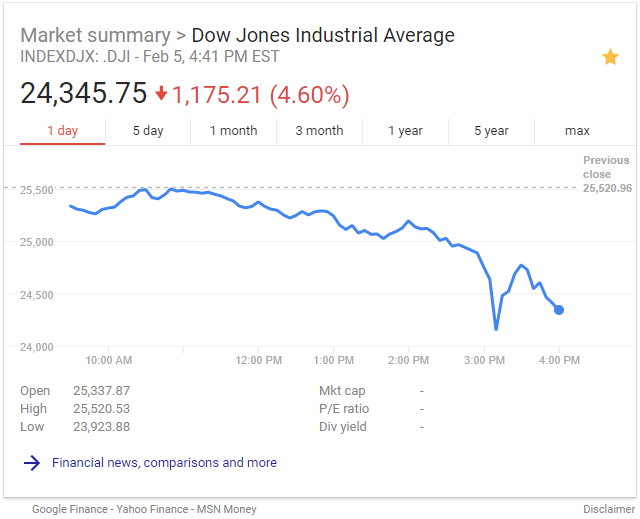Today, February 5, 2018 we saw a large decline of the Dow Jones Industrial Average and other stock market indices.
Although the stock market has had phenomenal gains since 2009, and especially in the past year, we are seeing a temporary decline that, in the past week, has erased the past two months of market gains.
Having a bias toward action is helpful in many areas of life, but investing is one area where inaction wins. In fact, investors who have died or simply have forgotten about their investments have results superior to the typical investor. The typical investor buys high, sells low, and then has fear of missing out (FOMO) and buys back in when the market is high again. The present “crash” spurs typical investors to sell, supposedly to prevent further losses. The typical investor’s behavior looks something like this:

